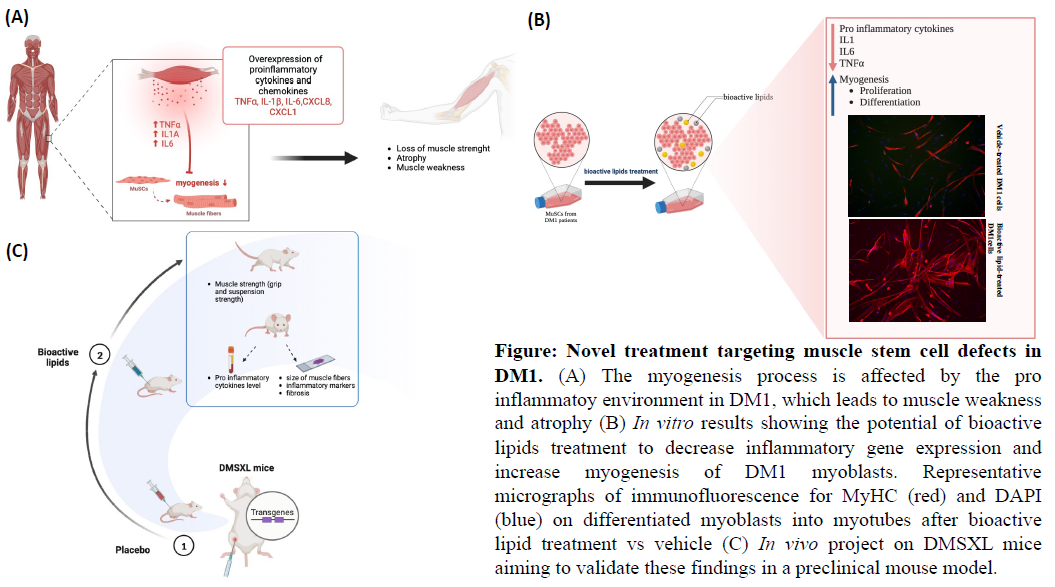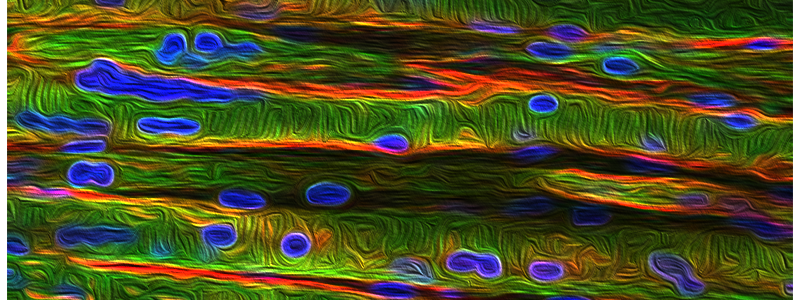Figure 1: Average percentage of progression of different strength and functional tests for 11 men with DM1 who have completed a 12-week strength training program. Measurements were taken before (0-week), during (6-week), immediately after (12-week) the program, and maintained benefits were measured at month 6 and 9 post-program. A) 1 repetition maximum (1RM), B) quantified muscle testing (QMT), 30 second sit to stand (30ssts) and 10 meter walk test (10mwt) are presented as an average of progression with week 0 being the baseline. * p<0.05
Project description
Myotonic dystrophy type 1 (DM1) is a multisystem inherited disease. The highest global prevalence is found in the Saguenay–Lac-St-Jean region (1/500). Skeletal muscle is severely impaired; individuals suffering from DM1 present, among others, muscular atrophy and a progressive loss of the maximum muscle strength. Strength training represents an interesting therapeutic avenue to slow the progression of muscular deficiencies. Recent data from our research group suggest a significant improvement in muscle strength and functional capacity after a strength training program (Figure 1). Skeletal muscle adaptation is possible in DM1 despite the genetic defect, but the underlying biological processes remain unknown. Since several biological processes and molecular functions are definitely involved in these strength and muscle mass gains, a study of muscle proteome was carried out by our group to explore the biological pathways explaining them. The objectives of this project are to measure the expression levels of the proteins of interest modulated by the training and of the genes encoding them by immunoblotting and qRTPCR, respectively. These analyses will increase knowledge about an orphan disease, DM1, and in particular about the related muscle deficiencies.
Research team
Name: Amira Aoussim, B.Sc.
Supervisor: Élise Duchesne (UQAC)
Laureate: Master’s scholarship 2019, Oral presentation at the 2020 Symposium





